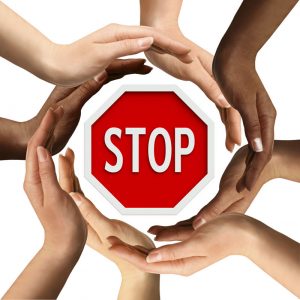26 Oct Stop Reacting and Cultivate Compassion

During times of direct uncertainty caused by a change of political power everyone is impacted. And no matter what side we are on, everyone experiences suffering of some kind. Suffering is the first noble truth and no one can escape that. Buddhist Teachers are often asked how do we practise during turbulent times, when civil liberties and freedoms are being taken away?
As Buddhists we have to remember that while some of us may think our civil liberties and freedoms are being taken away, there are other people who think they are gaining freedoms and civil liberties. That some of these people were perhaps angry when the government of their choice was not in power.
While we may have strong views about what is happening in the world, it does not make our view right, and many people may think our view is wrong and their view right. In the dharma we talk about having no view.
As Buddhists we are interested in how we react to uncertain times, because we know that the rate of addiction, self harm and suicide can spike during a change of the status quo. Humans seem to have an inbuilt tendency to turn away from discomfort, and things we don’t like happening, with blame, denial, self pity and distraction.
All of these coping mechanism just fuels more agitation and discontent in our heart/minds. I have no definitive answer of how to practise, but I do know that using uncertainty as an excuse to pick up our substance of distraction or choice will not make things better in the long term. While it may provide a temporary escape from the ills of the world, at some point we have to face our reality, no matter how painful we perceive it to be.
Uncertain times, is an opportunity for us to cultivate self compassion. When we truly touch compassion in ourselves, we will touch the compassion of everybody else in the world. And when we step of our cushions into the world, whatever protest or march we choose to go on, we will be motivated from a place of loving kindness and compassion.
Be aware of facilitative thoughts like: “I deserve a drink right now with all that is happening in the world today”, or “I may as well pick up my drug of choice, at least that’s something nobody can take away from me,” or “If they’re not going to let me back home into my country I may as well go on a bender,” or “nobody understands what it’s like to have a relative or friend killed in a terrorist attack, at least I can console myself with my choice of drug.”
As Buddhist cultivating self loving kindness and compassion is fundamental because it helps to purify the mind/heart, and free us from unwholesome thoughts about the people who are in political power and making decisions. The Dhamapada (verses of the dhamma) emphatically states: “hatred does not still hatred”.
It’s during times like this we must remember step six: Placing Positive Values at the centre of our lives. A year ago on this blog, this stanza came to me while reflecting on the 6th step of the 8 step recovery program.
Watch your thoughts; they become stories
Watch your stories; they become excuses
Watch your excuses; they become relapses
Watch your relapses; they become dis-eases
Watch your dis-eases they become vicious cycles
Watch your vicious cycles they become your wheel of life
New Updated Edition of Detox Your Heart – Meditations on Emotional Trauma 2017
For a free sample of the first chapter, book study and 21 meditations of “Eight Step Recovery – Using The Buddha’s Teachings To Overcome Addiction,” please email: eightstepsrecovery@gmail.com
I will be delivering an online Mindfulness Based Addiction Recovery course during the month of January 2018. For people in recovery and people working in the field of recovery. For more information please email mark@wildmind.org



